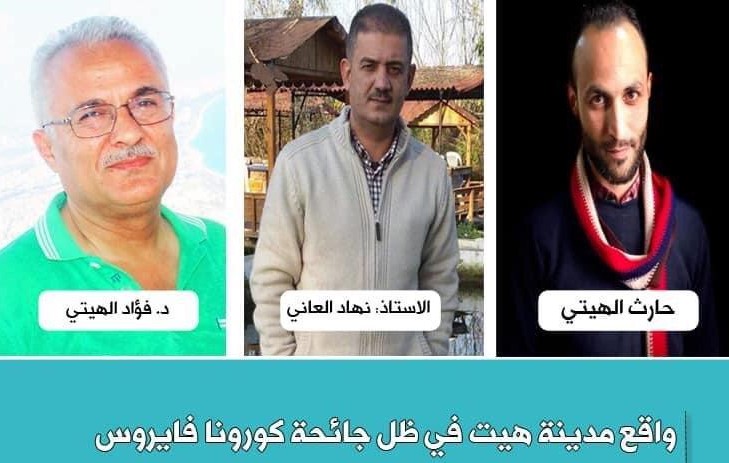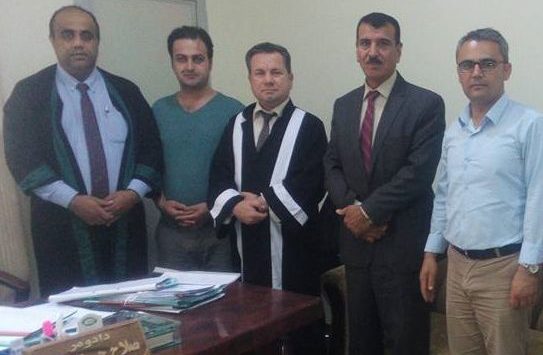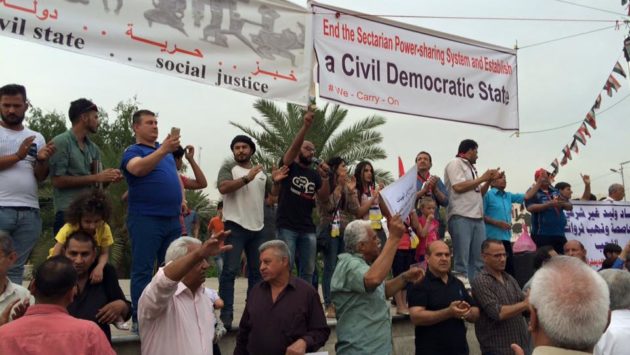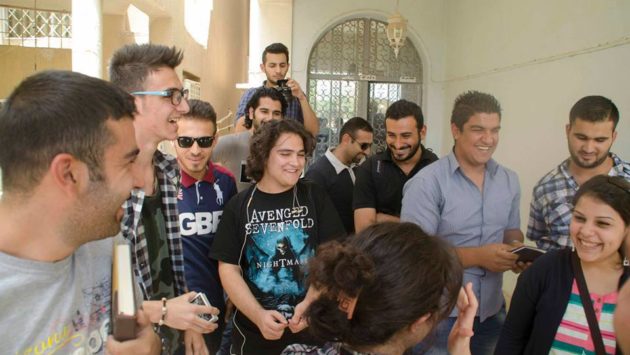Hit Responds to the Coronavirus Pandemic
The Shaqofian Organization for Development and Culture held a virtual seminar entitled ‘Reality in the City of Hit in the Shadow of the Coronavirus Pandemic’ on 20 May 2020. The seminar featured expert speakers who talked about the state of public health in Hit, the work of the crisis cell tasked to deal with the virus and its effects within the city, both positive and negative, and the economic and social repercussions of the curfew.
Dr. Fouad Al-Hiti, a specialist in internal medicine at Hit General Hospital, spoke about how the virus impacted the health of residents and the health infrastructure in Hit after the outbreak of Coronavirus in Iraq. The healthcare system in the country might be unable to prevent a virus of this intensity in the future; the matter depends on citizens’ awareness and their commitment to preventive measures. He also stressed that Hit, despite its weak healthcare system, which was devastated as a result of the war against ISIS, has nevertheless to this day been able to prevent the virus from spreading in the city. This is due to the success of the mechanisms adopted by the Health Directorate of Hit, such as awareness-raising campaigns and sterilization campaigns, as well as the large efforts that are still being made by the medical staff in providing health services for the residents of the city.
Professor Nihad Al-Ani, a member of the Crisis Cell in the city, talked about the nature of the measures taken to combat the virus and their impact on normal life in Hit. Every action has its pros and cons, and the quarantine is clearly a good protective procedure, especially given the increasing numbers of infected people in Iraq. To date, Hit has yet to report any virus-related casualties. The negative aspects of the protective strategies are represented by their failure to address the dire economic situation now faced by a wide segment of Hit’s community (and in the country in general). Members of the crisis cell now plan gradually to ease the restrictions and allow some professions to carry out their work, provided that they adhere to social distancing and other regulations. Professor Nihad Al-Ani pointed out that some reported violations of the new regulations have occurred due to a misunderstanding in which individuals assumed that the bans put in place were related to tightened security meant to limit basic rights instead of a ban to protect public health. The crisis cell is thus working to clarify this issue and coordinate with the security authorities in order to prevent future disruptions that might create excessive risks to public health. Professor Nihad Al-Ani stressed the importance of complying with the instructions set by the crisis cell in the city in order to ensure that the virus does not spread.
At the end of the seminar, Harith Al-Hiti, an activist and a writer, spoke about the economic and social repercussions of the Coronavirus pandemic in Hit, stressing the importance of an emergency crisis cell to address these repercussions. It is crucial that displaced families receive adequate care and that the humanitarian situation is directly addressed. There is a need to launch a comprehensive relief campaign at a city-wide level, coordinated by the local government and civil society, which has been impressive in its rapid response and its role in promoting social solidarity within Hit, which has endured extremely difficult conditions since the implementation of the health curfew measures.
This symposium is one of a series of digital seminars that the organization intends to implement in light of the social distancing imposed by the virus on the whole world. It was presented in partnership with the Iraq Civil Society Solidarity Initiative, CCFD, the Iraqi Social Forum, and the Peace Forum in the Hit.




